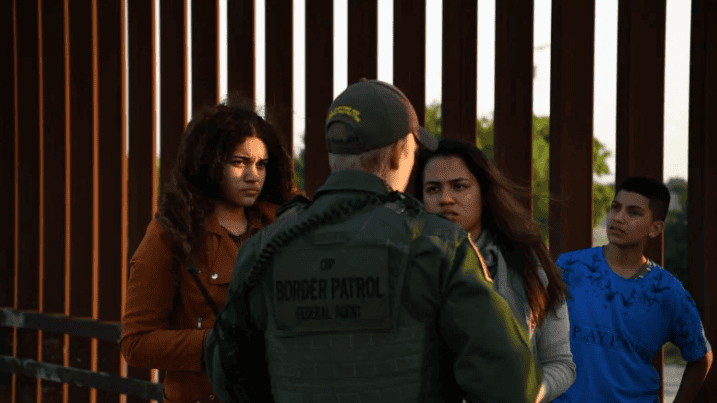
Canada could be in violation of international obligations, human rights expert says
The federal government says it stands by its designation of the U.S. as a safe third country despite domestic and international calls to suspend a border pact with Washington in the wake of controversial asylum policy changes implemented by the Trump administration.
“The United States remains a country governed by the rule of law, and by the branches of the executive, legislative and judiciary, while also subscribing to international conventions on refugees and on torture,” said Marie-Emmanuelle Cadieux, press secretary for Minister of Border Security Bill Blair.
“The Safe Third Country Agreement between Canada and the U.S. is not affected by these changes,” said Cadieux.
On Wednesday, Amnesty International called on Canada to immediately suspend the Safe Third Country Agreement (STCA), saying a new U.S. policy for its southern border does not adequately guarantee the rights of those seeking asylum.
The policy, implemented Tuesday, deems any person who enters the U.S. across its southern border ineligible for asylum if they failed to apply for protection in a third country through which they transited en route to the U.S.
The policy effectively prohibits most Central American migrants from asylum protections.
“With the implementation of this policy, there is no single basis upon which the STCA can, in any way, be defended,” said Justin Mohammed, Amnesty International Canada’s human rights law and policy campaigner.
“The operation of the STCA would prevent those very same claimants from obtaining protection in Canada and therefore must be suspended, or otherwise risk complicity in U.S. violations of international refugee and human rights law,” said Mohammed.
The United Nations’ refugee agency said Monday that the new U.S. policy jeopardizes asylum protections and is out of step with international obligations.
The UN High Commissioner for Refugees “believes the rule excessively curtails the right to apply for asylum, jeopardizes the right to protection from refoulement, significantly raises the burden of proof on asylum seekers beyond the international legal standard, sharply curtails basic rights and freedoms of those who manage to meet it, and is not in line with international obligations,” according to a statement released Monday.
Violation of agreements
Under the STCA, refugee claimants are required to request refugee protection in the first safe country they arrive in — meaning Canadian border officials would send back to the U.S. any would-be refugee claimants arriving at an official border crossing to Canada.
Audrey Macklin, professor and chair in human rights law at the University of Toronto, says Canada should suspend the STCA in the wake of the new U.S. policy changes.
“The UNHCR has said … the United States is not in line with international obligations — that’s a way of saying it’s not safe,” said Macklin in an interview with CBC News Network’s Power & Politics.
“The United States has adopted a law that allows it to send people back to countries where they may face a well-founded fear of persecution with no chance to make up their refugee claim,” Macklin told host Vassy Kapelos.
“If Canada sends people back to persecution it’s in violation of the [UN] Refugee Convention. If Canada sends people to a country that it knows will send people back to face persecution, it also violates its international obligations,” added Macklin.
Asked if that would put Canada out of line with its international obligations, the UNHCR’s representative to Canada, Jean-Nicolas Beuze, said he wasn’t in a position to comment because the agency is still reviewing the legal aspects of the implications for a person showing up at the Canadian border.
Cadieux, Bill Blair’s press secretary, said the minister spoke with the UNHCR representative to Canada about the agency’s concerns.
Blair’s office said Canada will continue to monitor conditions to ensure the U.S. continues to meet the requirements for safe third country designation.
The new U.S. policy is expected to face a legal challenge.


